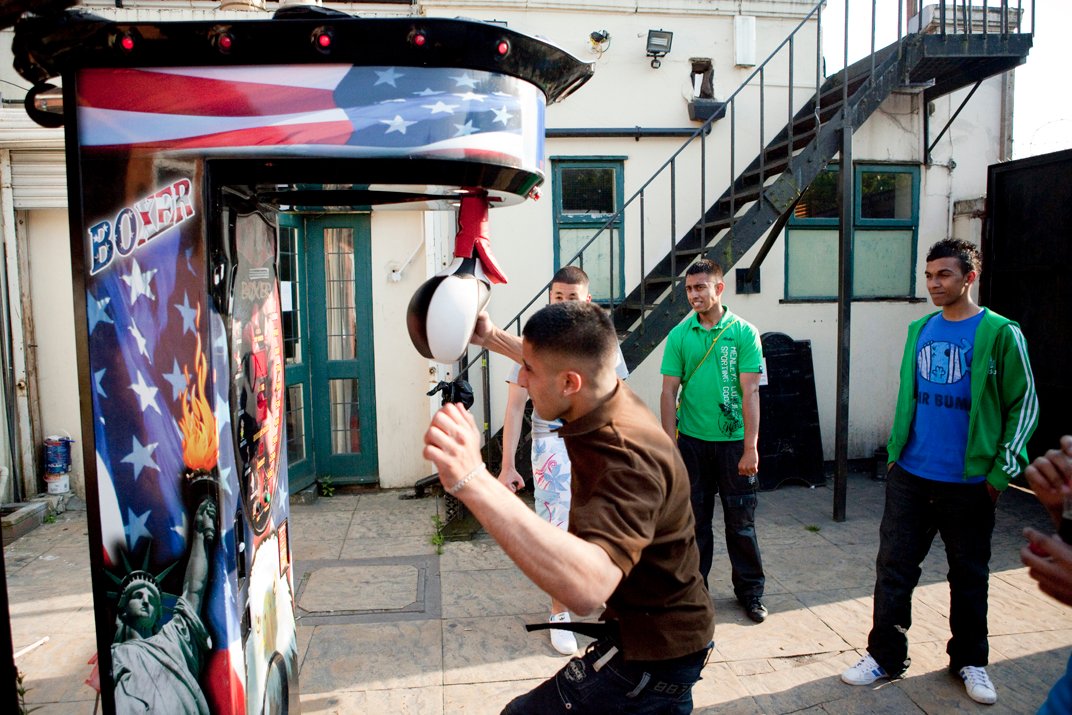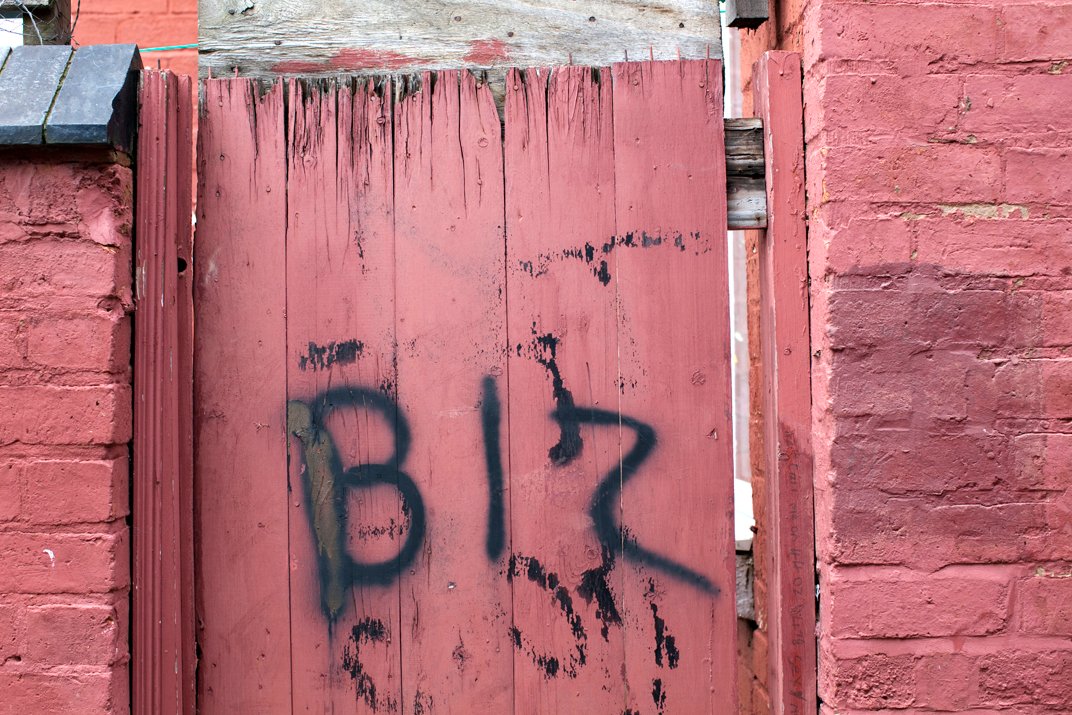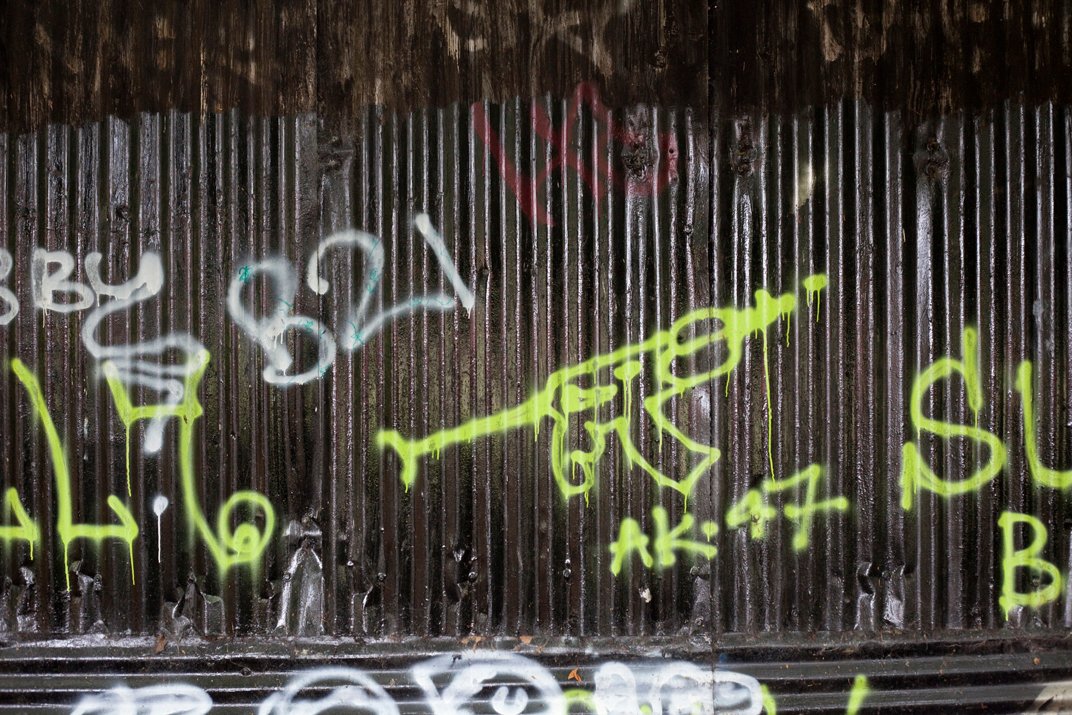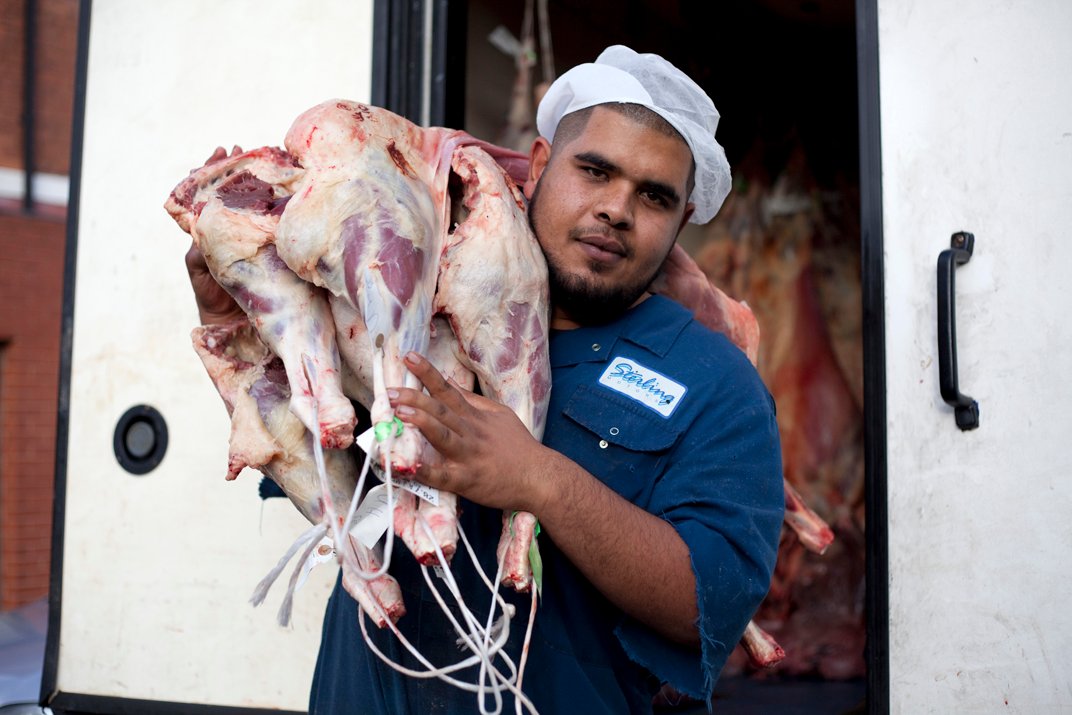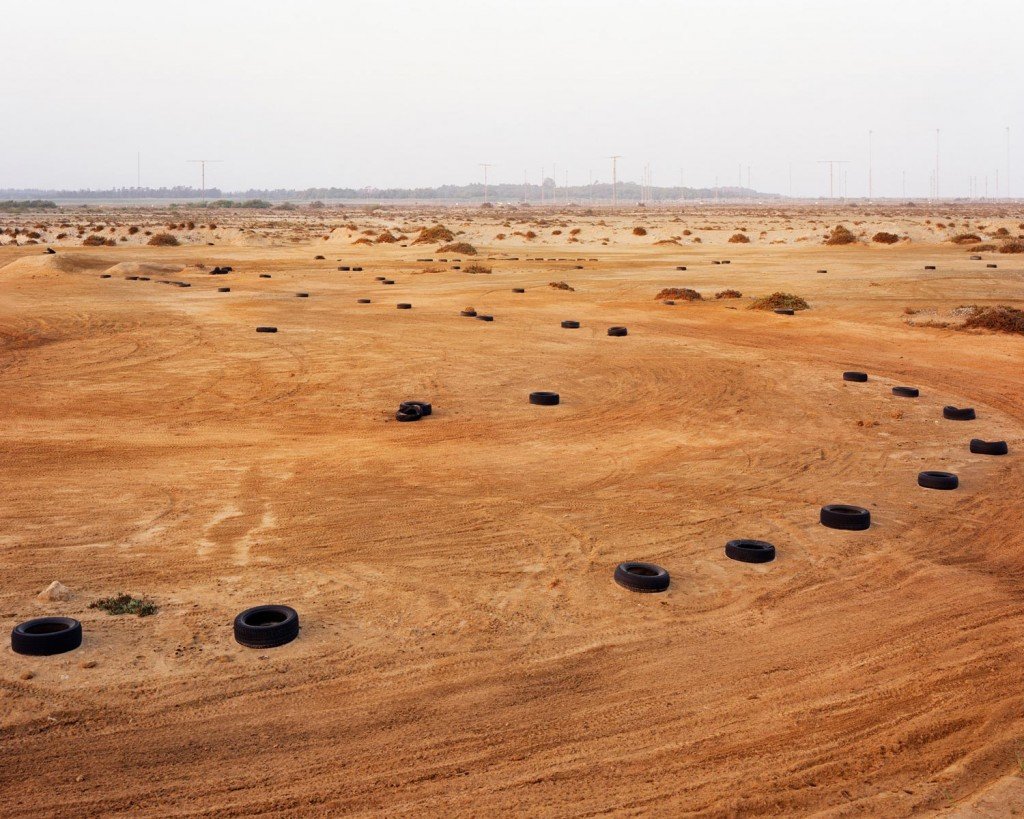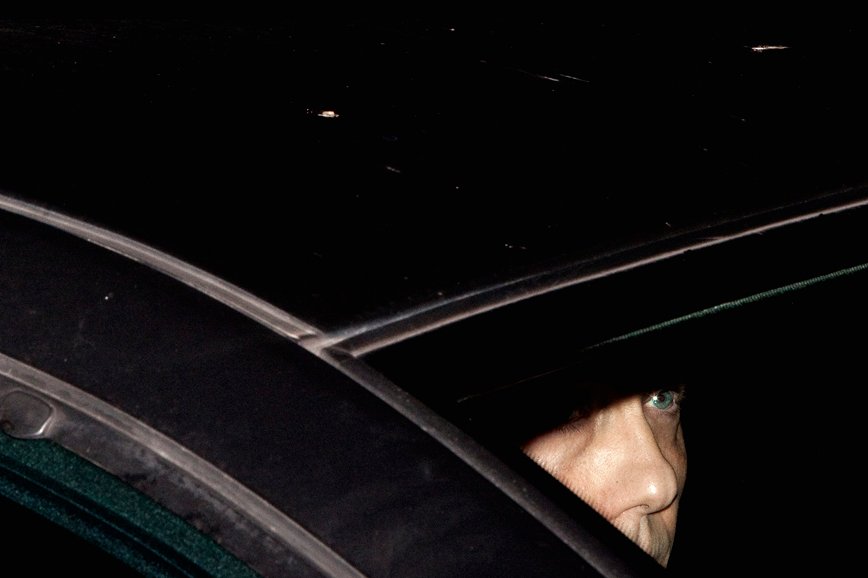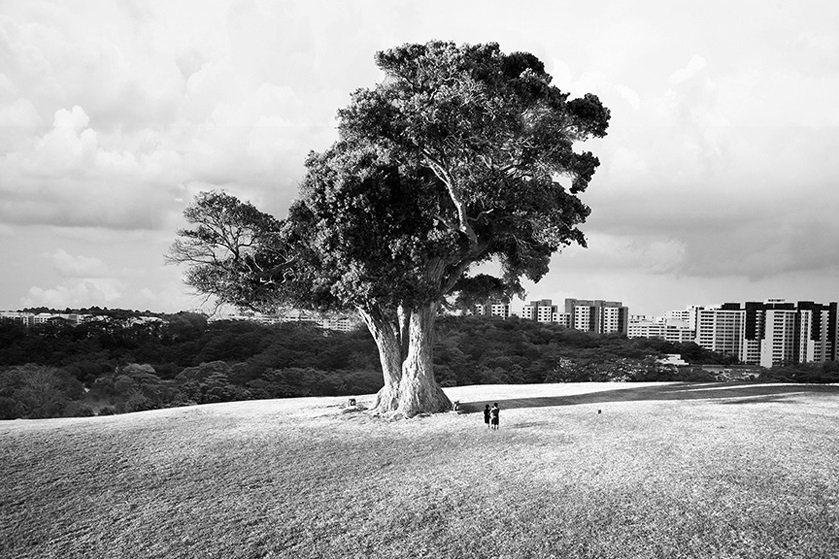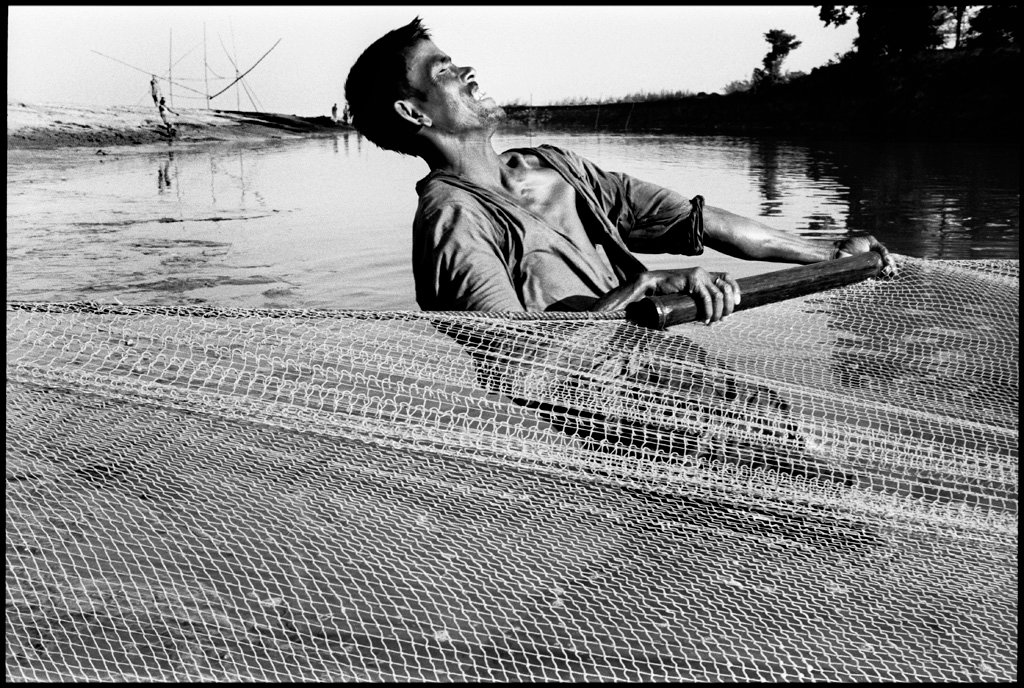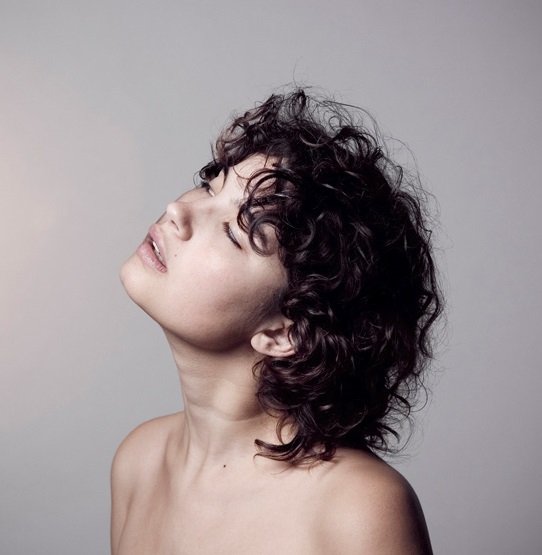England –
You Get Me is a series that has taken four years to complete and addresses the changing identity of young British working class Pakistani men living in Birmingham, while also documenting individuals from Kashmir, Bangladesh, Iraq, Yemen and Afghanistan. The men I have documented identify themselves through their religion as Muslims, however, my work is not about religion, it is principally concerned with the evolution of British culture.
The work has been made by walking the streets of Birmingham, stopping individuals and engaging with them. Often they would ask me, why them, why were they so interesting, how they did not feel special. My portraits are very straight and centralized, placing emphasis on the sitter and not the artist in order to celebrate the individual. I believe my portraits force a vital interaction between the sitter and viewer.

String vest, two tears © Mahtab Hussain
The desire of these young British Muslims is to be westernized and accepted, however their community is insular and inherently avoids integration with the wider population. Religion is often explained as the cause of the divide, part of which is true. However, several reasons play a role, poverty, social/cultural constraint by families, and a relentless reminder of British colonialism. This has caused a great deal of hopelessness within the community through segregation, racial subordination and failure in education and employment.
Anger held by the community towards wider society has imploded and given rise to internal tensions. Birmingham has seen an increase of Muslim immigration over the last 15 years, with overcrowded living conditions and segregated inner-city streets more akin to the ghettos so prevalent in American cities. This in turn has given rise to territorial postcode wars. Violence is commonplace and suffered by many and the community in Birmingham that was once harmonious is now afraid of itself. In the past it was Muslims against non-Muslims now it is Muslims against Muslims.
The struggle to find a sense of identity and belonging in Britain is fuelled in part by being made to feel shameful of their religion and heritage after the traumatic events of 9/11 and 7/7, combined with daily challenges to the ethics of their religion. Muslims are ridiculed by negative media representation and find it difficult to associate England as their home, as more often than not, they are labelled as ‘the others’. I feel this tension is more prevalent within the British Muslim community because of its strong collective identity. To add to the confusion, these young men, without a strong sense of their own individual identity, attempt to desperately find one and in doing so, latch on to simplistic ideologies the West offers throughout the media.

Man with Japanese Akita © Mahtab Hussain
Furthermore, most of the men in this series were children from the 80’s onwards and were born at a time when Margaret Thatcher’s government was playing out its manifesto of the idea of no society in favour of the individual. The emphasis placed upon the individual in Britain since then, is in direct conflict with these young men’s heritage which firmly roots itself in the concept of a collective society; the West’s loss of sincerity towards community is having a direct impact on their cultural heritage. It is not these young men who are in crisis per se, they are simply a metaphor for the crisis of British society as a whole.
I always thought these men were experiencing a crisis of personal identity, and as a result latched onto Black, American culture in particular. However, I realise that it wasn’t their crisis but an evolution of urban culture, of personal identity, which is occurring in Britain, and indeed, all over the world. I believe that is what my work addresses, and once the viewer realises these profound complexities, the work becomes a very powerful metaphor for addressing the intricacies of Western, multicultural society on a wider level.
Written and photography by Mahtab Hussain
